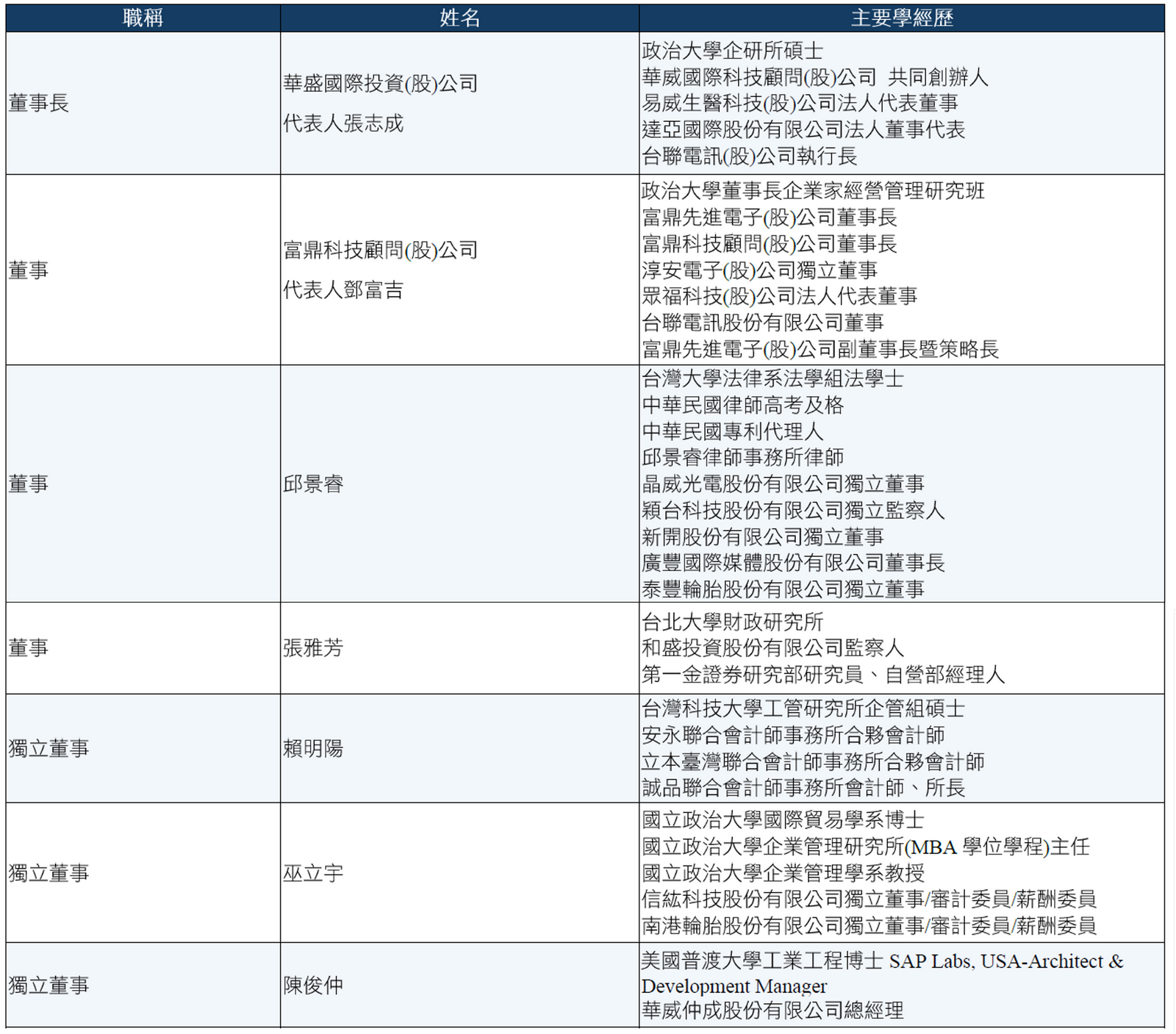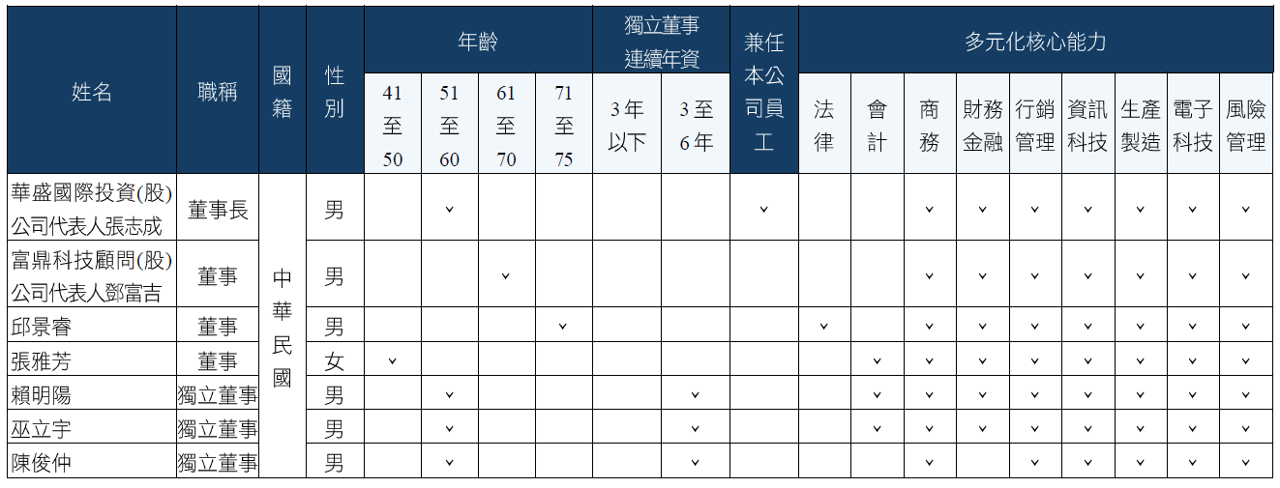Five Aspects of Performance Evaluation
In order to implement corporate governance and enhance the functions of the Company's Board of Directors, performance goals are established to enhance the operational efficiency of the functional committees.
The Company considers the Company's status and needs to determine the measurement items for performance evaluation. The 2024 performance evaluation of functional committees includes the Remuneration Committee and the Audit Committee, covering the following five aspects:
(1) The degree of participation in the company's operations.
(2) Awareness of the responsibilities of the functional committees.
(3) Improving the decision-making quality of the functional committees.
(4) The composition of the functional committees and the selection of members.
(5) Internal control.
Executing Unit
The executing unit of the internal self-evaluation of the functional committees of the
Company is the Finance Department. According to the scoring criteria of the evaluation indicators, the evaluation results report is recorded and submitted to the Board of Directors for review and improvement.
Functional Committee Performance Evaluation
In 2024, the functional committees were evaluated positively for their responsibilities and effective operation within the framework of corporate governance. Their efficiency and effectiveness were both positively evaluated and received an "Excellent" rating. This evaluation was reported to the Board of Directors on March 13, 2025. The results of this evaluation will serve as a reference for determining their individual remuneration and for future selection and nominations.


